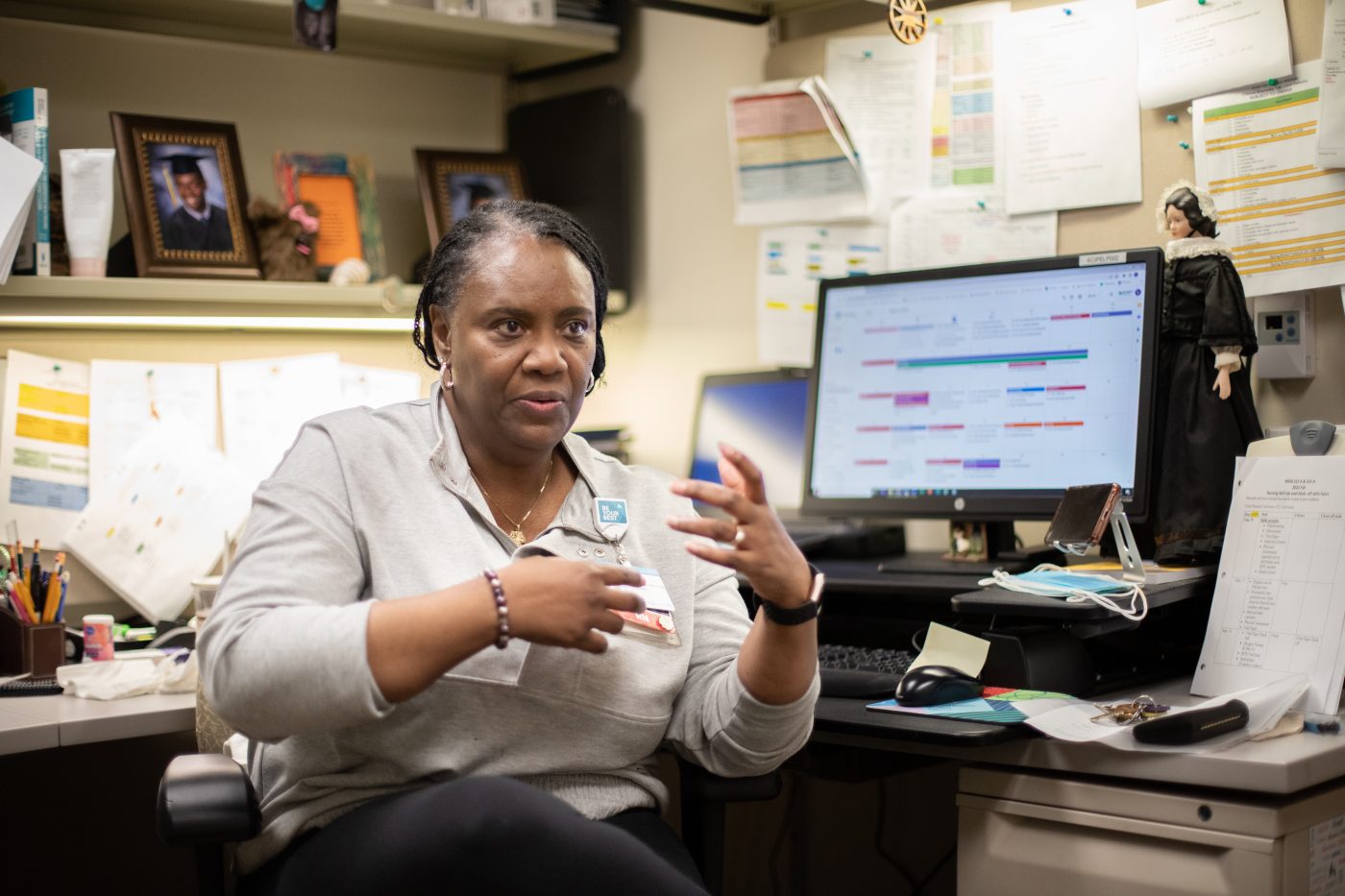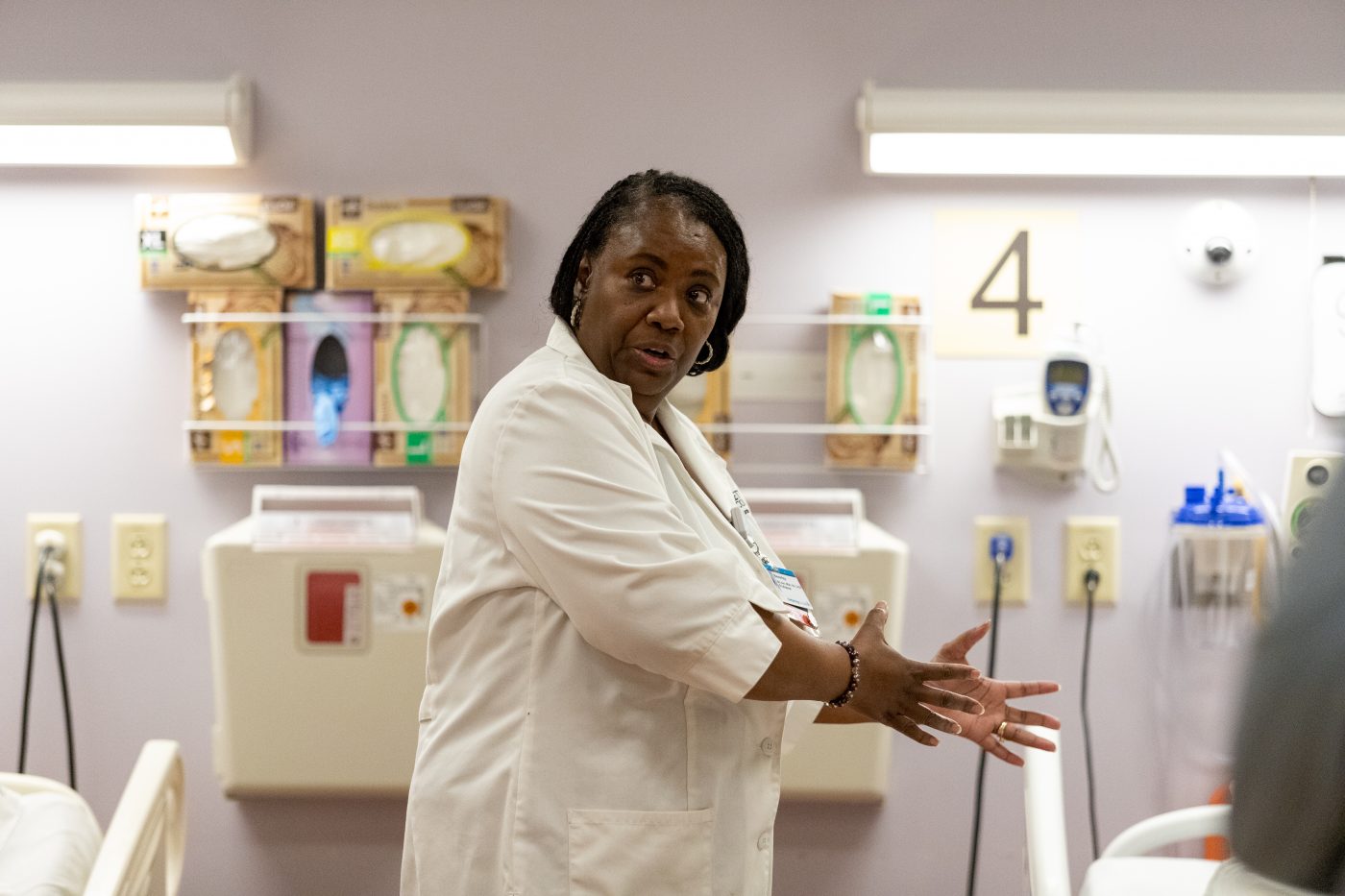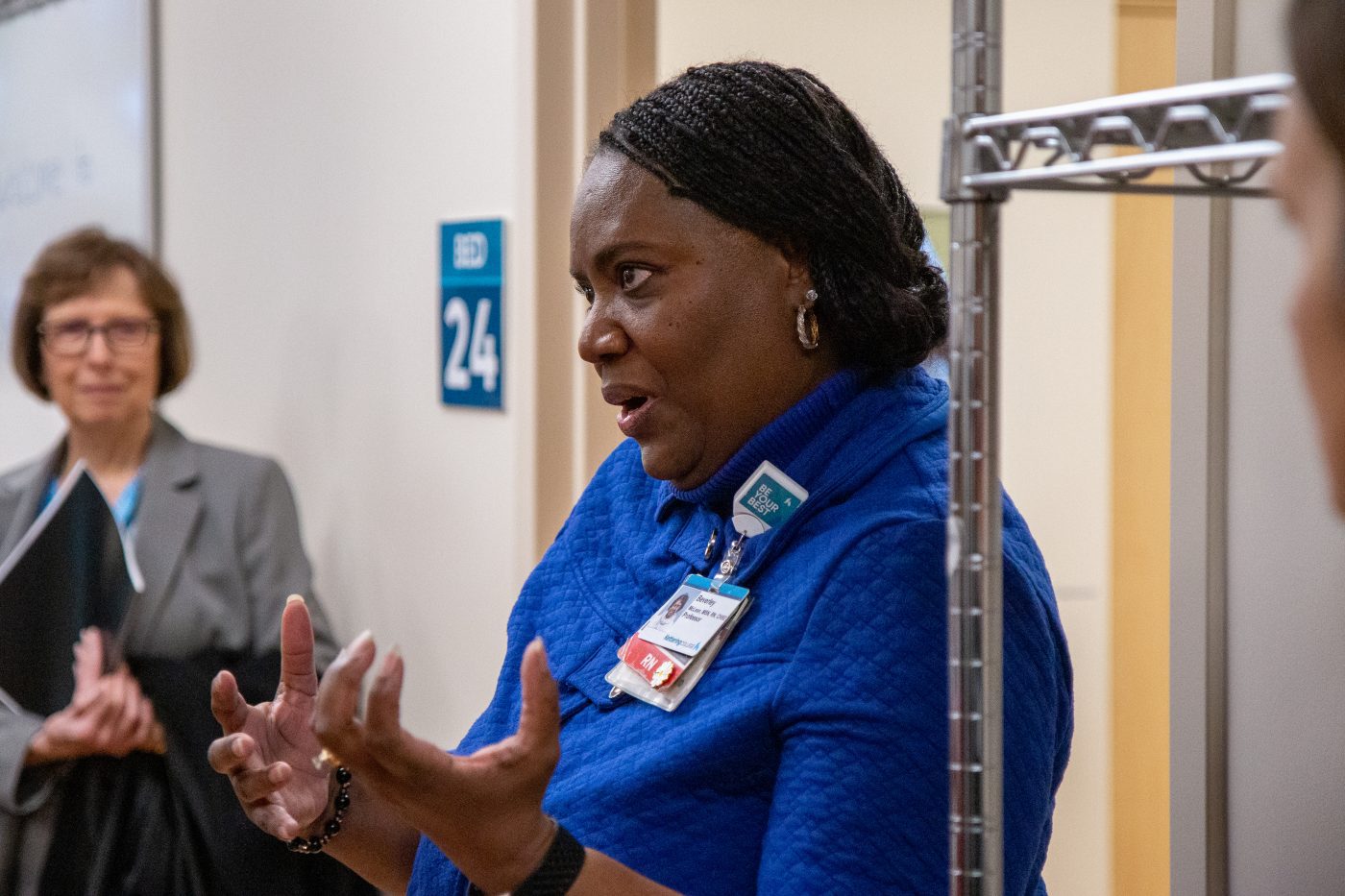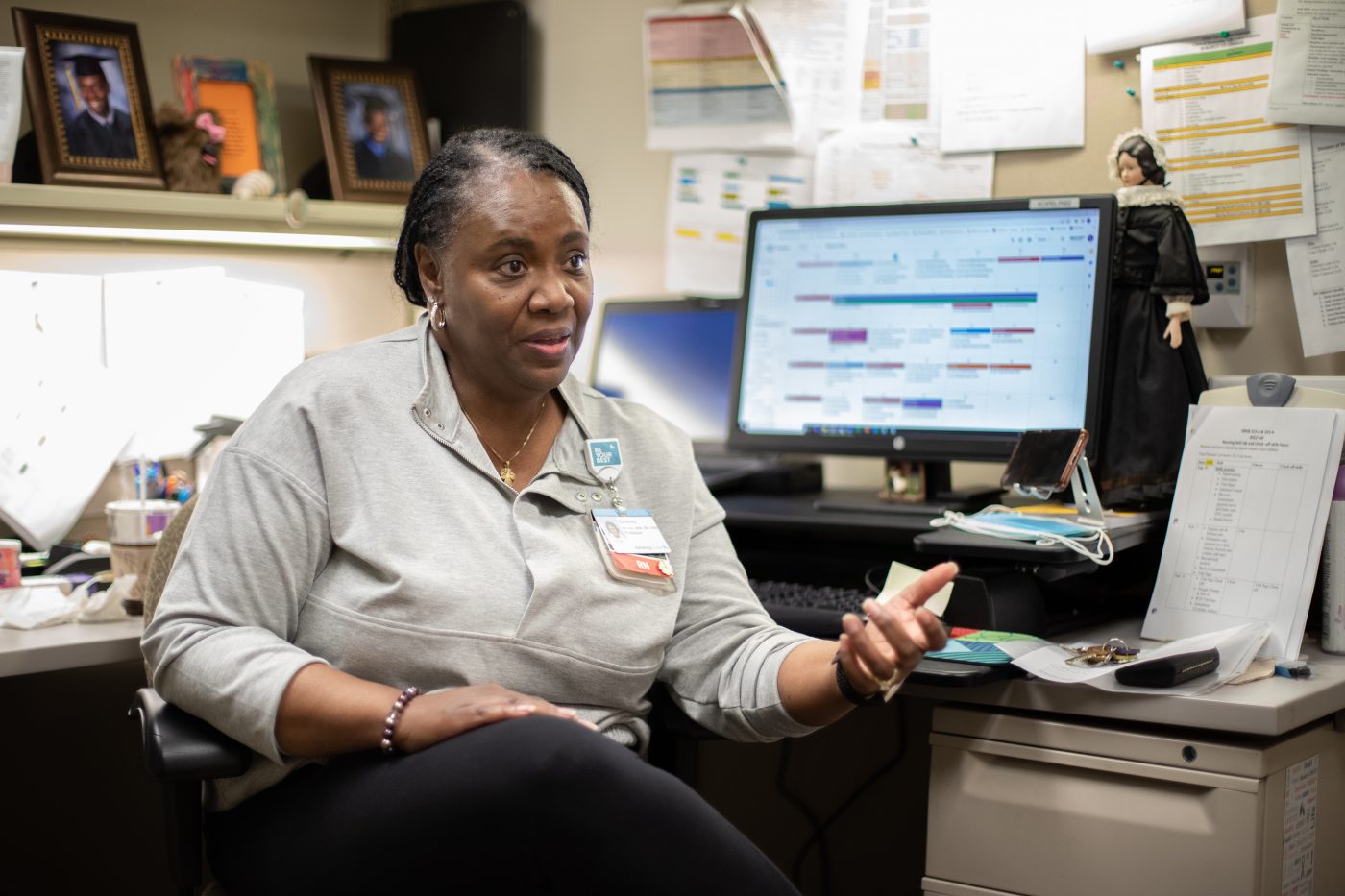Bev McLean: Balancing Science with Humanity

Beverly McLean is a perfect example of a female leader who leads by rolling up her sleeves and doing the work while appreciating the people she meets along the way. She was born in Jamaica before moving to New Jersey with her family when she was eight years old. Several of her family members worked in healthcare, so she was not surprised when she found she had an interest in that field as well.
Bev received a bachelor’s degree in biology and began working as a forensic chemist. She loved that the career utilized her science skills, but after long days spent in the lab, she realized she was missing interactions with people. Her sister-in-law urged her to become a nurse to combine her love of science with her love of people.
She went to nursing school and knew immediately it was exactly what she was looking for. She says, “Being a nurse brought human connection to science,” which is what was lacking in her forensic chemist career. Her nursing career began on a medical-surgical unit, and she thrived in this environment. She says, “I loved the variety of having to think on my feet about how to best treat a variety of patients.”
As her career progressed, she became a preceptor for students and found how fulfilling teaching was and began to become curious about that path in life as well. When her family moved to this area in 2002, she heard about Kettering College, and her interest in teaching continued to nudge her to move forward with that idea.

She was hired here in 2006 and began working in the lab and began doing clinicals and taking on more responsibilities. Knowing for certain teaching would be her next career move, she returned to college to receive her master’s degree in nursing education and was hired as a full-time professor until 2019 when the lab coordinator retired.
“People before me poured themselves into me, and now I pour myself into others.”
Bev was asked if she wanted to take on that job. Being a professional who embraces change and new challenges, she accepted the position and continues to be the IPE simulation center nursing coordinator. She has seen the program and technology expand since her career began here 17 years ago.

Bev says she has appreciated that her career has grown and progressed with her and her interests over the years. As she juggled work with raising her children, her path has been a nice progression of finding what her passion is while being able to balance both worlds.
Her favorite part of her position as an educator is when she runs into former students who now work as healthcare professionals. She says, “I can see my work in action. People before me poured themselves into me, and now I pour myself into others. When I see a former student in the Kettering Health cafeteria, it is so rewarding to see them move on and continue that cycle. They go from being my student to my colleague.”
Women’s History Month
Bev says, “As women, we make such a huge contribution, especially in healthcare. Sometimes we’re not valued for our knowledge. We can be viewed by the general public as kind and caring, but they don’t always understand the rigor and level of knowledge we bring to the table to provide care. It’s not just about fluffing pillows. It takes leadership and the ability to be an advocate for our patients.”
Because of this misleading stereotype, she says students are sometimes surprised that compassion alone is not enough to become a nurse. She reminds students, “Becoming a nurse takes math, biology, chemistry, and science. The heart and science of nursing are both so necessary. We bring high levels of skills to the profession.”

“Whatever you are bringing and need people to know, you must give voice to it. If you don’t, others will speak for you.”
During Women’s History Month, Bev says it’s important to celebrate women in every industry. She says, “We need to have a voice at the table.” She is reminded of a quote she once heard that she will never forget: “If you’re not sitting at the table, then you’re on the menu.” Bev says, “Wherever we find ourselves—in the board room, taking care of our children, leading others—we have to be an advocate for the group we represent, whoever that might be. Our perspective must be heard—whether it’s from a minority standpoint, underrepresented community, or female—we must take a seat at the table to be heard.”
“Whatever you are bringing and need people to know, you must give voice to it. If you don’t, others will speak for you—not maliciously, but just from a place of not knowing. They don’t see the world how you do, so don’t let them speak for you.”
She says women bring a different, wonderful perspective to the table. It is a table at which she has worked hard to have a seat. She uses her knowledge, patience, and gratitude to lead others and does it with a quiet confidence steeped in faith and experience. Her leadership tells those she is leading they are in the best hands as they answer the call to working in healthcare. She pours her knowledge and encouragement into them, so they can, in turn, do the same one day.
Print This Page